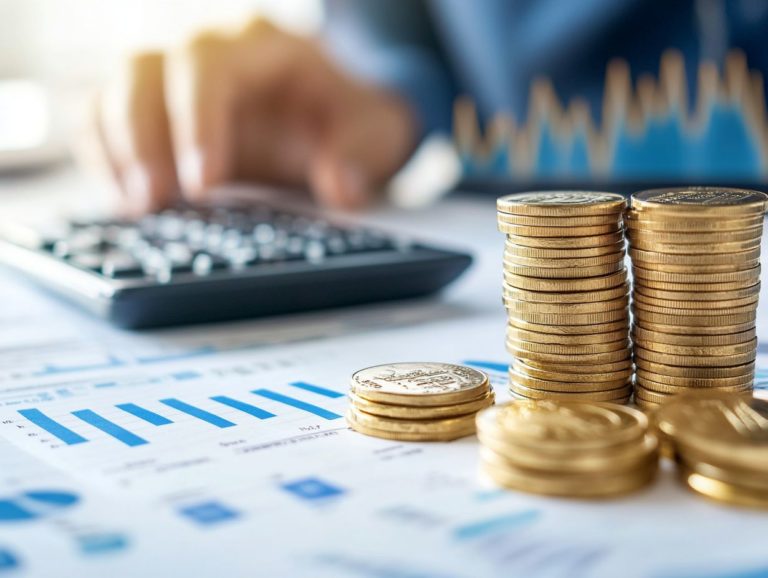Exploring the Nexus Between Precious Metals and Taxes
Understanding the intricate relationship between precious metals and taxes is vital for you as an investor or collector.
This article serves as your guide through the complexities of tax laws and regulations affecting gold, silver, platinum, and other precious metals. It explores the potential tax benefits of investing in these assets, examines the implications of selling them, and highlights key considerations for inherited metals.
Whether you’re looking to optimize your investment strategy or navigate estate planning nuances, this overview offers valuable insights tailored to your needs.
Contents
- Key Takeaways:
- The Relationship Between Precious Metals and Taxes
- Types of Precious Metals and Their Tax Implications
- Investing in Precious Metals for Tax Benefits
- Tax Considerations When Selling Precious Metals
- Navigating Tax Laws for Inherited Precious Metals
- Frequently Asked Questions
- What is the nexus between precious metals and taxes?
- What are the tax implications of buying and selling precious metals?
- Are there any tax-free options for investing in precious metals?
- Do I have to pay taxes on my physical possession of precious metals?
- How can I minimize my taxes when investing in precious metals?
- Are there any tax benefits of investing in precious metals?
Key Takeaways:
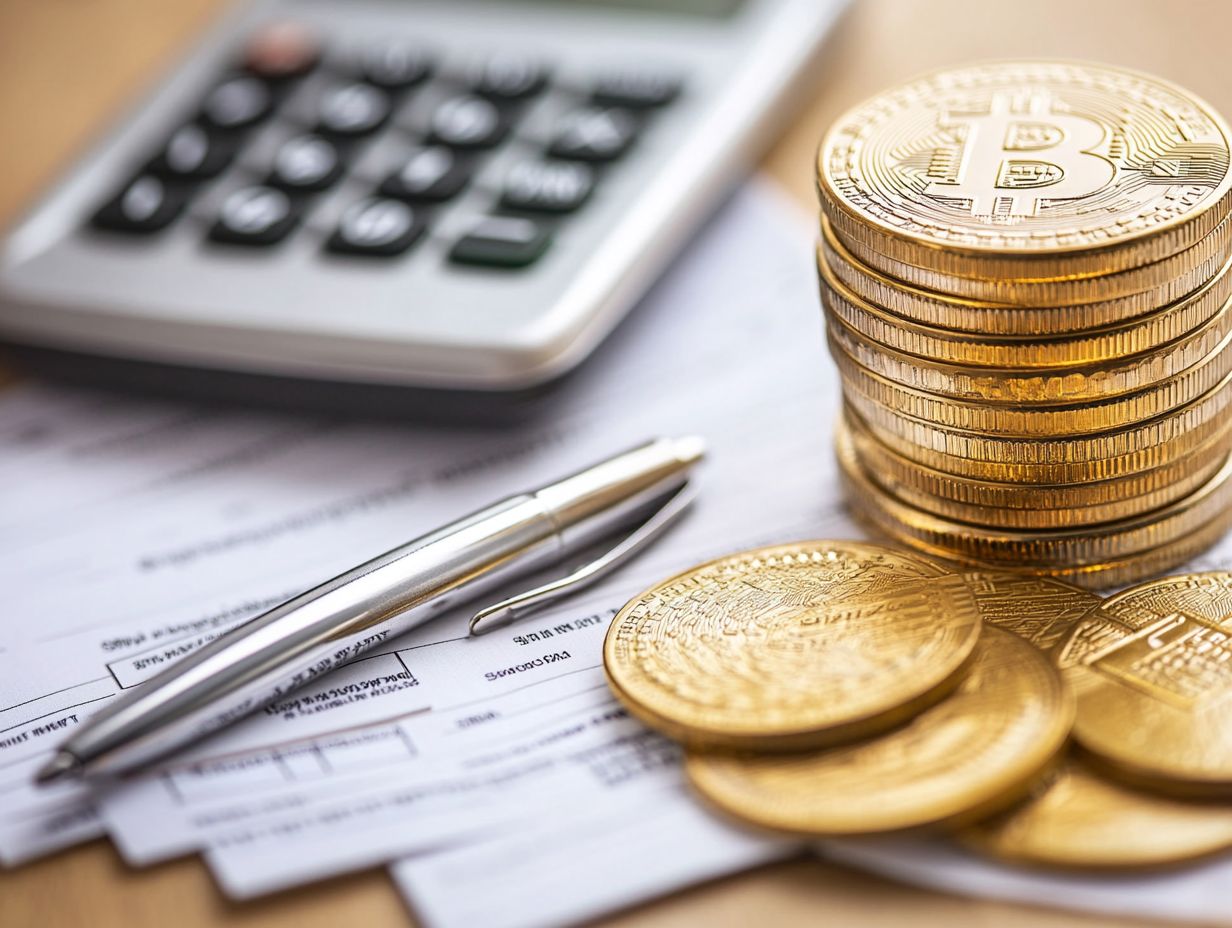
- Investing in precious metals can provide tax benefits, such as diversifying assets and potential tax deductions.
- Selling precious metals could lead you to face capital gains taxes, so it’s important to understand reporting requirements and strategies to minimize taxes.
- Inherited precious metals may be subject to different tax laws, so it s vital to seek guidance for estate planning and inheritance.
The Relationship Between Precious Metals and Taxes
Understanding how investing in precious metals relates to tax implications is key for investors navigating the complexities of capital gains, especially with assets like gold and silver. These precious metals serve as unique financial instruments that can offer significant tax advantages, influencing your investment decisions and financial growth.
Grasping IRS regulations regarding how these assets are taxed whether through short-term or long-term gains, or in relation to an Individual Retirement Account (IRA) is essential. This understanding can help you optimize your tax liabilities. It’s vital to explore this relationship if you seek to build a diversified investment portfolio, especially in the face of economic uncertainty.
Understanding Tax Laws and Regulations
Knowledge of tax laws and regulations concerning precious metals empowers you to meet regulations confidently. This understanding not only ensures compliance but also helps you optimize your returns while minimizing tax liability.
Navigating the intricate world of taxation on precious metals can profoundly influence your financial outcomes. For example, understanding the impact of tax changes on silver investments is crucial. Distinguishing between short-term and long-term capital gains is essential. Short-term gains, taxed as ordinary income, can hit with higher tax rates, compared to the more favorable long-term capital gains rates for investments held over a year.
If you’re buying and selling bullion or coins, consulting a tax professional can provide personalized guidance. This ensures your transaction reporting is accurate. Don’t overlook necessary reporting requirements, like completing Form 1099-B, to disclose transactions exceeding certain thresholds. Additionally, understanding the pros and cons of taxing precious metals can help you navigate your obligations. Such actions promote transparency and keep you compliant with IRS regulations.
Types of Precious Metals and Their Tax Implications
The tax implications of precious metals such as gold, silver, and platinum show significant variations that can shape your investment strategy and capital gains tax responsibilities. Each metal has its own distinct characteristics and market dynamics, affecting how the IRS classifies and treats them for tax purposes.
Understanding these nuances is essential for enhancing your tax efficiency and making informed investment choices. Precious metals act as a hedge against inflation and are a reliable store of value. It is crucial for you to fully grasp their respective tax implications.
If you’re considering investing in precious metals, take action now. Consult a tax professional or further explore the intricacies of precious metals investing.
Gold, Silver, Platinum, and More
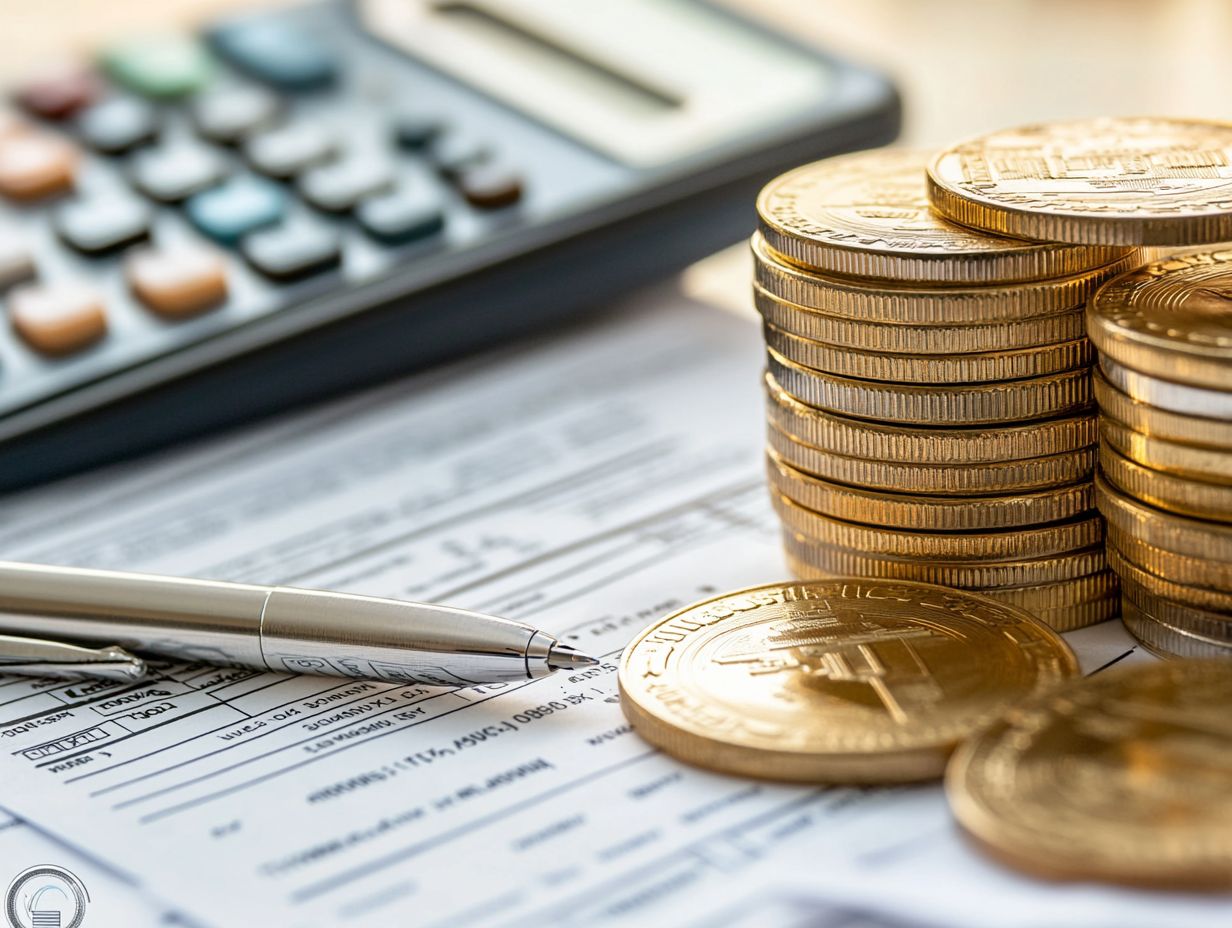
When you’re investing in gold, silver, platinum, or other precious metals, you must know the specific tax implications that can vary based on whether you re dealing with bullion or numismatic value.
Bullion refers to metal valued for its weight. Numismatic items have extra value because of their rarity or collector interest. Understanding these nuances is key.
Bullion is generally straightforward in terms of tax treatment. In contrast, numismatic items may be subject to different tax rates and regulations. This distinction can significantly impact your capital gains tax calculations, especially when considering tax strategies for precious metals in the current market, as selling numismatic coins might trigger higher taxes based on their appreciation in value.
For example, as a collector, you may encounter unique reporting requirements that complicate your overall investment strategy. Being well-informed about these characteristics and tax implications of precious metals in business ventures will empower you to make prudent decisions in your precious metal investments.
Investing in Precious Metals for Tax Benefits
Investing in precious metals presents a wealth of tax benefits, especially through vehicles like a Gold IRA. Don t miss out on these incredible tax advantages!
This strategy offers substantial tax advantages compared to traditional investments such as ETFs or mutual funds. These benefits enhance diversification in your investment portfolio while acting as a safeguard against inflation and economic uncertainty.
By grasping the tax-efficient strategies linked with various investment options, you can optimize your financial growth and long-term gains while effectively minimizing your tax liability.
Tax Advantages and Strategies
Employing effective investment strategies focusing on precious metals can offer you substantial tax advantages, especially concerning capital gains and overall tax liability.
As an investor, carefully consider the tax implications of both short-term and long-term capital gains when trading in valuable assets like gold, silver, and platinum. Short-term gains from assets held for a year or less are taxed at ordinary income rates, which can be significantly higher. Conversely, long-term investments held for over a year may qualify for much more favorable capital gains tax rates.
Utilizing tax-advantaged accounts, like IRAs designed specifically for precious metals, provides a pathway to defer taxes while allowing your investments to appreciate. Understanding the tax implications of precious metals in business transactions is essential for managing your tax burdens while maximizing returns on your precious metal investments.
Tax Considerations When Selling Precious Metals
When you sell precious metals, carefully consider the tax implications, especially concerning capital gains and the reporting requirements established by the IRS.
Taking these factors into account will help you navigate the complexities of taxation effectively and ensure compliance with regulations.
Capital Gains, Reporting, and More
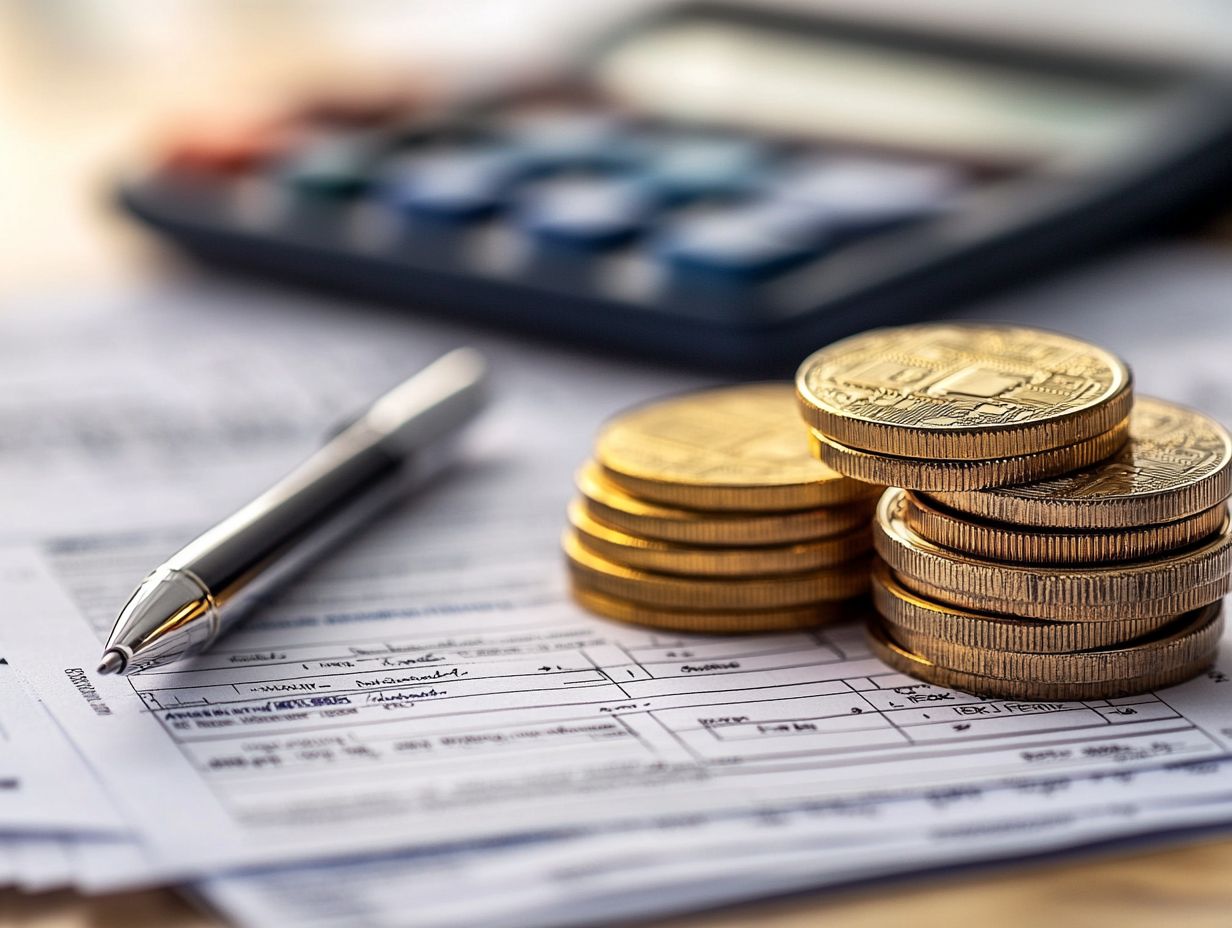
Capital gains from selling precious metals can carry significant tax implications, requiring careful attention to reporting requirements and documentation like Form 1099-B.
When investing in gold, silver, or other precious metals, it’s vital to understand the tax implications of precious metals in different states. You need to accurately report your capital gains to the IRS, which occur when you sell metals for more than you initially paid.
Every transaction must be meticulously documented, including purchase dates and amounts, to assess your gains or losses accurately. Neglecting to maintain these records can complicate tax time, possibly leading to underreporting or higher tax liabilities.
It s essential to realize that capital gains tax rates can differ based on how long you hold the assets, highlighting the importance of strategic planning in your asset management.
Understanding tax laws can be exciting, especially when it comes to precious metals! Navigating tax laws for inherited precious metals requires a careful understanding of several key factors. You’ll need to consider estate taxes, inheritance taxes, and the concept of a step-up basis (the adjusted value of an inherited asset), all of which can profoundly influence the financial landscape for heirs.
Understanding these elements empowers you to make informed decisions and optimize your inheritance strategy.
Guidance for Estate Planning and Inheritance
Effective estate planning for inherited precious metals requires a deep understanding of both tax implications and important legal points to ensure your financial interests are well protected and optimized.
Navigating the intricacies of estate planning can be daunting, especially when it involves valuable assets like precious metals. Recognizing that these assets can bring about unique tax burdens, such as capital gains taxes, upon their sale is crucial. Understanding the implications of international tax on gold investments can significantly influence their value during estate settlements.
Complete the legal paperwork carefully to ensure that the wishes of the deceased are respected while minimizing potential disputes among heirs. Consulting with professionals who specialize in taxation and estate law can offer you strategic insights that help prevent costly mistakes, ultimately maximizing the benefits of your inherited precious metals, including understanding the tax implications of precious metals gifts.
Frequently Asked Questions
What is the nexus between precious metals and taxes?
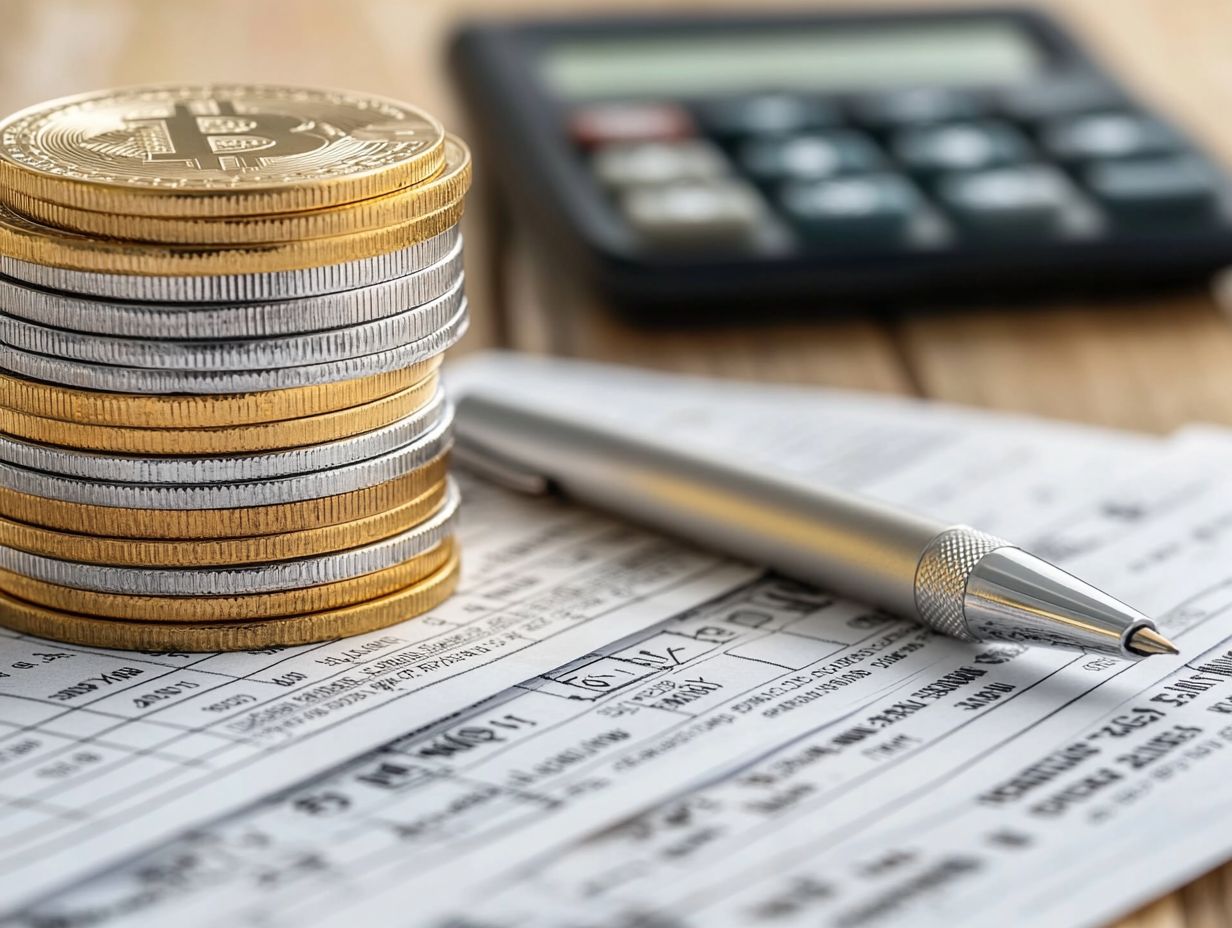
The nexus between precious metals and taxes refers to the relationship between these valuable metals, such as gold, silver, and platinum, and the taxation policies that govern their purchase, sale, and ownership.
What are the tax implications of buying and selling precious metals?
The tax implications of buying and selling precious metals vary depending on the type of metal, the holding period, and the tax laws in your country. In some cases, these transactions may be subject to capital gains tax or sales tax.
Are there any tax-free options for investing in precious metals?
Yes, there are certain tax-free options for investing in precious metals, such as opening a self-directed IRA or buying precious metals through a tax-exempt entity. However, it is important to consult with a financial advisor or tax professional before making any investment decisions.
Do I have to pay taxes on my physical possession of precious metals?
In most cases, owning physical precious metals, such as gold coins or bars, does not trigger any tax liability. However, if you sell these metals for a profit, you may be subject to capital gains tax.
How can I minimize my taxes when investing in precious metals?
One way to minimize taxes when investing in precious metals is to hold them for at least one year before selling. This may qualify you for long-term capital gains tax rates, which are typically lower than short-term rates.
Are there any tax benefits of investing in precious metals?
Yes, there are some potential tax benefits of investing in precious metals, such as using them as a hedge against inflation or diversifying your portfolio. However, it is important to thoroughly research and understand the tax implications before making any investment decisions.










